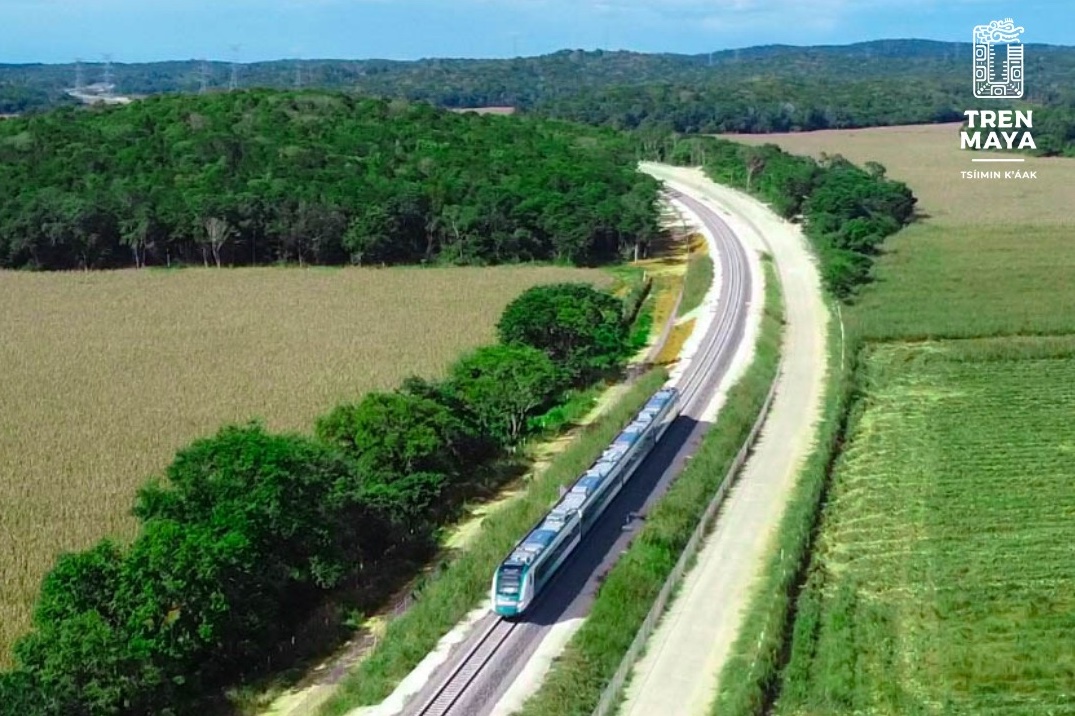The Secretary of Tourism of the Government of Mexico, Josefina Rodríguez Zamora, accompanied by more than 60 ambassadors from Germany, Austria, Spain, Italy, Argentina, Belgium, Brazil, the United States, Jordan, Vietnam and many more, made a tour aboard the Mayan Train, where she urged them to join the tourism promotion in their countries of representation.
She stressed that with the above, the Mayan Train – which arrives, among others, at the station of the archaeological zone of Chichén Itzá, one of the New 7 Wonders of the World – takes new steps to consolidate itself as an act of historical justice for the Mayan Original Peoples and tourist integration of the communities of the south-southeast of Mexico.
“When we invite you to tour the Mayan Train and its surroundings, it is to share a vision with you: that of a country that is committed to the south-southeast, that honors its history and that builds a common future. We ask you to bring this message to the nations in which it represents Mexico, a country that has transformed its heritage into opportunities, with responsibility and sustainability,” she said.
She pointed out that, in this meeting, the ambassadors had the opportunity to learn in detail about this work of tourist infrastructure, as well as the strategies, instruments and promotional actions to position this infrastructure work in the world.
“Ambassadors, representatives of Mexico, the Mayan World is not a postcard of the past, but a door to the present and to a better future. Each station and every attraction of the Mayan Train is an entrance to millennial wisdom, to the richest biodiversity and a hug to the communities that open their hearts to us,” she said.

Accompanied by the Undersecretary for Latin America and the Caribbean, Raquel Serur Smeke; the general director of the National Institute of Anthropology and History, Diego Prieto Hernández, and the governor of Yucatan, Joaquín Díaz Mena, Rodríguez Zamora explained that the Mayan Train is accompanied by a network of services that strengthen it, generate jobs, protect the natural environment and celebrate the living culture of the Indigenous Peoples, among which she highlighted the 7 hotels managed by the Airport, Railway and Auxiliary and Related Services Group, Olmeca-Maya-Mexica.
She said that, with more than 1,500 kilometers of railway, this work connects Chiapas, Tabasco, Campeche, Yucatan and Quintana Roo, through 34 stations, 21 municipalities and more than 40 archaeological zones.
She explained that, since December 2023, the Maya Train has transported more than 1.1 million passengers, with an increase of 171 percent in tickets sold in April 2025, compared to the same month of 2024.
She thanked the commitment and joint work carried out with the Ministry of Foreign Affairs, headed by Secretary Juan Ramón de la Fuente, as well as with the administration of the Mayan Train, in charge of the general director, Óscar Lozano Águila.
